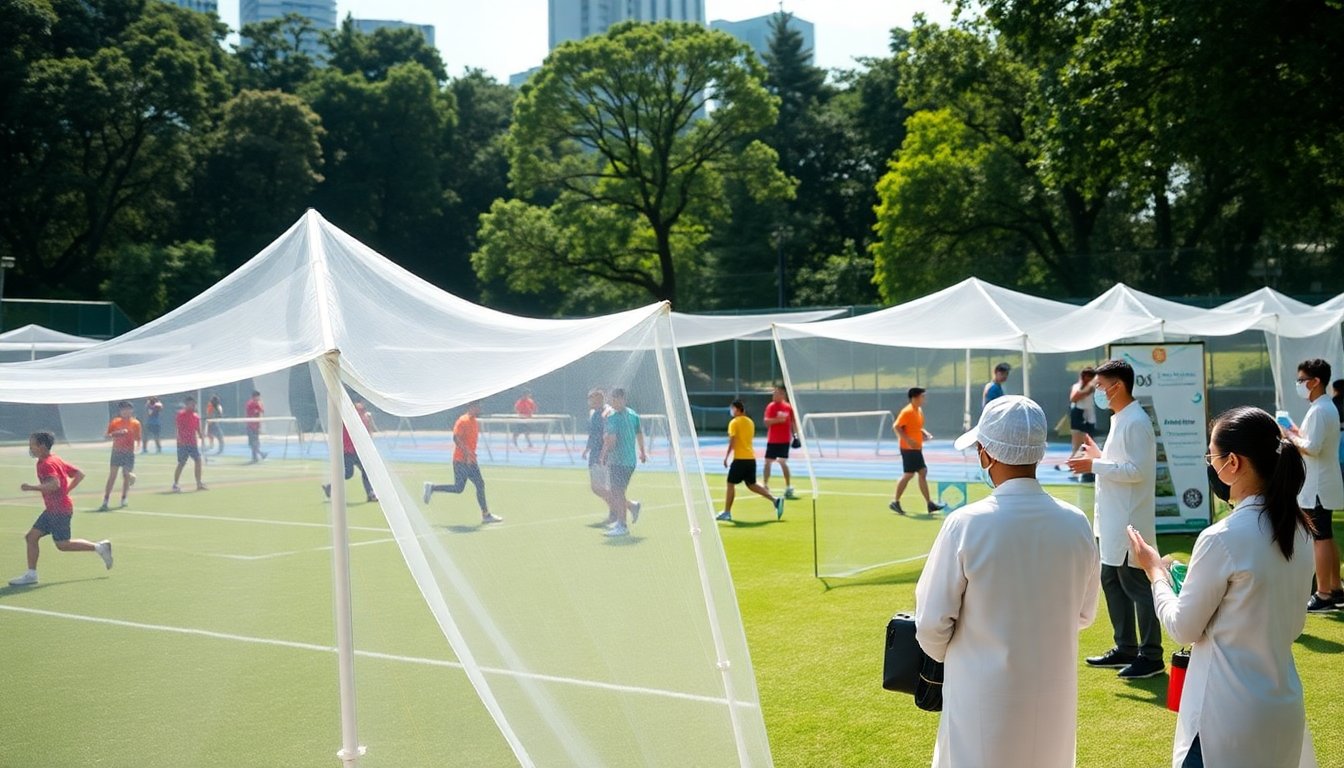Table of Contents
As the National Games approach, health concerns regarding chikungunya fever are escalating in Hong Kong. Professor Jasper Chan Fuk-woo, a leading microbiologist at the University of Hong Kong, has highlighted the ongoing transmission of this mosquito-borne disease, particularly from the neighboring Guangdong province. His insights underscore the necessity for vigilance amid the potential for outbreaks during this major sporting event.
Current state of chikungunya in Guangdong
While there have been improvements in managing chikungunya infections in mainland China, particularly compared to earlier peaks, transmission rates in Guangdong province remain troubling. Professor Chan noted that the University of Hong Kong-Shenzhen Hospital continues to see a steady influx of chikungunya cases, which include both locally contracted infections and those acquired outside the region.
Infection statistics and trends
The situation regarding chikungunya was critical, with reports of hundreds of new cases being recorded daily. Although the situation is gradually stabilizing, health officials emphasize that achieving full control of the disease will require additional time and resources. Chan stated, “Although we are making progress, the risk is still present, and complete control is not yet achieved.” This highlights the ongoing challenges faced by health authorities in effectively managing this virus.
Implications for the National Games
The National Games, co-hosted by Hong Kong, Guangdong, and Macau from November 9 to 21, will likely increase movement across these regions. Professor Chan emphasized that the expected surge of visitors and participants from the Greater Bay Area may raise the risk of chikungunya transmission. “The increased traffic flow and frequent travel within the bay area will heighten the likelihood of disease spread,” he stated.
Preventive measures and public awareness
Due to elevated risks, public health officials must implement effective preventive measures. Raising awareness and educating the public about chikungunya, its symptoms, and ways to avoid mosquito bites are essential steps to reduce infection risks. The health department is initiating efforts to inform the public about precautionary measures, especially as the National Games will draw a diverse crowd.
The situation is rapidly evolving:
The potential rise in chikungunya cases during the National Games is a significant concern for health experts in Hong Kong. As preparations for this major sporting event continue, it is vital for both authorities and the public to stay alert. Understanding the current state of chikungunya in Guangdong and the risks associated with increased human movement can help safeguard public health as the Games progress.


